
As we’ve done previously, I have collaborated with Rami Lutfi, MD, and Jaime Ponce, MD, to produce the 2019 On the Spot: Practice Patterns. The impetus for this column’s topic initially was to highlight issues surrounding private versus employed versus academic practice, as each of these models continues to experience critical change. The focus of this On the Spot has grown to include other aspects of practice, such as industry’s role, long-term contract satisfaction, physician burnout in the private and hospital settings, and conflicts of interest on the supply chain committee. This is Part 1 of a two-part series. Part 2 will appear next month.

Read on, take a side, access On the Spot online, and share your view with a comment. Feel free to send me any ideas for column topics at colleen@cmhadvisors.com. Happy reading!
—Colleen Hutchinson
Colleen Hutchinson is a medical communications consultant at CMH Media, based in Philadelphia. She can be reached at colleen@cmhadvisors.com.
| P A R T I C I P A N T S | |
|---|---|
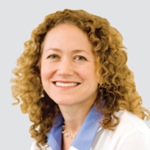 | Professor of surgery, chief of the Division of Bariatric, Foregut and GI Surgery at Stony Brook University, Stony Brook, N.Y. She is president of SAGES, but her answers reflect her own personal opinions. Disclosure: Baronova, Ethicon, Gore, Medtronic, Merck, Obalon and Stryker. |
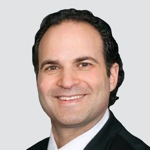 | Director of bariatric surgery at Western Connecticut Health Network, in Danbury; section chief of general surgery at Norwalk Hospital and Fairfield County Bariatrics, both in Norwalk, Conn., specializing in laparoscopic bariatric and foregut surgery |
 | Assistant professor of surgery and chief of the Division of Bariatric Surgery at University of Tennessee Health Science Center in Memphis |
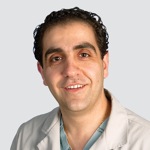 | Clinical associate professor of surgery at the University of Illinois at Chicago; section chief of metabolic surgery at Advocate Illinois Masonic Hospital; past chair of ASMBS Private Practice Committee; and president of the ASMBS ThePOWER Foundation. |
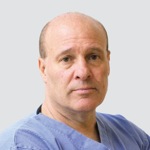 | Professor of surgery at University at Buffalo, N.Y.; surgeon at Jackson North Medical Center in Miami. Dr. Zundel also serves as a consultant to the Minimally Invasive and Bariatric Surgery of Fundacion program in Santa Fe de Bogota, Colombia |
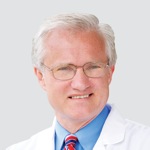 | Professor and chief of general and bariatric surgery at East Carolina University, Greenville, N.C., and current president of the American Society for Metabolic and Bariatric Surgery |
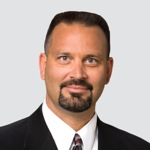 | MIS/bariatric fellowship director at Gundersen Health System in La Crosse, Wis. Disclosure: Speaker for Gore; proctor for Ethicon/Torax; consultant to Lexington Medical. |
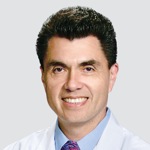 | Medical director of the bariatric surgery program at CHI Memorial Hospital in Chattanooga, Tenn.; past president of ASMBS |
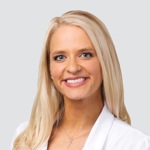 | Director of the Greater Baltimore Medical Center’s comprehensive obesity management program in Towson, Md. |
 | Bariatric surgeon in private practcie in New York City. Disclosure: Honoraria for consulting for Allurion and Obalon |
Industry has had a largely positive impact on our surgical specialty from the standpoint of providing for balanced and critical education as well as research support.
Dr. DeMaria: Agree Over the years, industry has provided tremendous amounts of unrestricted educational grant support that is important for maintaining our professional education and research efforts.
Dr. Pryor: Agree Our industry partners are just that—partners. They help us with surgical innovation and provide us with the latest in resources to deliver up-to-date care. They support our surgical meetings, which allows us to deliver accredited and unbiased education. They also support more directly linked educational activities. Many of these courses still have minimal commercial bias, but these events also need to be considered potentially promotional. Industry-supported research will also be for activities that are anticipated to be in favor of their products, but investigators should still publish outcomes regardless of findings. These studies allow junior investigators to get some traction with funded research and potentially expand into larger, government-funded projects.
Dr. Zundel: On the fence I have to answer splitting the standpoints. I totally agree that industry has a largely positive impact on research support and critical education. We are partners in this. So, for that I always thank them, and I do appreciate what they do for and with us.
Regarding the standpoint of “balanced,” most of the time I agree, but sometimes I am on the fence about content that is not that balanced.
Dr. Lutfi: Agree Surgery in general, laparoscopy in particular, is heavily dependent on technology. Therefore, we are increasingly dependent on “industry” to push the limit on what we can do in surgery to further enhance recovery, and increase safety and efficacy of procedures.
I believe, for the most part, industry has done well with courses and training for the particular devices they market. This, in addition to FDA training requirements, has increased the safety profile of implementing innovation.
As for the “balanced education” point, industry courses and education are by definition skewed to the particular approach of interest. Having said that, CME [continuing medical education] courses, even when sponsored by industry (within the compliance confines) are fair and balanced. It is essential to always disclose any conflict of interest in such courses in order to maintain balance.
Dr. Ponce: Agree For the most part, industry has had a large positive impact in our early days of our specialty. They assisted surgeons and hospitals to get trained, and started bariatric programs, facilitated proctorships, preceptorships, learning courses, educational materials and staff support in many ways. Also, they supported the establishment and assistance needed for fellowship training programs around the country. In addition, they have graciously supported significant unrestricted grants to the professional societies to assist in education, research and advocacy. Of course, not all industry is the same, and we also have bad examples of short-term industry coming in—and out—trying to take advantage of our needed patients.
Dr. Floch: On the fence Industry is a driver of research in the field of bariatric surgery. Industry has funding and incentive for development to drive innovation. Reporting fair and accurate results for procedures remains the job of critically thinking academic researchers who are able to overlook biases. Education has been strongly supported by industry but does have product bias, which may interfere with the interpretation and implementation of results.
Dr. Kurian: Agree, although over the trajectory of minimally invasive surgical advances, the companies may not have always worked well together. Today, I think the focus is on the patients and improving care and outcomes.
Dr. Kothari: Agree Innovation requires a combined effort between clinician and industry support. Simply put, for-profit businesses have more discretionary income than not-for-profit health systems. The entire field of minimally invasive surgery was built on this unique relationship between surgeons and industry. More recently, many industry partners have separated leadership oversight of research and educational grants from the sales force. This provides the ideal environment for industry to sponsor innovation, education and research, and not have it directly tied to its profitability from sales.
Dr. Weaver: Agree Industry has been responsible for technological advances in our field, which have greatly improved patient care and weight loss options. The progress that industry is currently making with pharmacologic weight loss is also enhancing patient treatment, even with respect to surgical patients. As for surgeon education, industry continues to fund many aspects of that, from courses to proctoring to annual meetings. Industry has proven to be a vital part of medical advancement.
Dr. Dovec: Agree Our industry partners provide several educational opportunities in the form of webinars, preceptorships and courses for surgeons based on areas of need and interest. They facilitate connections. In addition, research to improve techniques and products are constantly ongoing.
Employed physicians’ satisfaction diminishes after the first contract “honeymoon” period.
Dr. Pryor: Disagree Part of the benefit of being an employed physician is not having to worry about contracting rates, staffing or benefits. After your contract is negotiated and in place, employed physicians ideally have clear goals and objectives for performance, and a stable income that is independent of short-term variability in practice volumes. Over time, this predictability can help with satisfaction.
Dr. Kothari: Agree There is certainly financial security as an employed physician with the added benefit of not having to worry about running the business side of a practice. But a large physician survey (Kane L. Employed Doctors Report: Are They Better Off? Medscape. March 11, 2014. www.medscape.com/ slideshow/ employed-doctors-6006080#10.) has shown that physicians in private practice are more satisfied with their current practice. (This survey also showed that 70% of physicians who switched from employed to self-employed were happier versus 49% the other way around.) After years of higher education and delayed gratification, being one’s own boss brings its own unique benefits. These “professional civil liberties” are relinquished in the employed physician model and often translate into higher professional dissatisfaction.
Dr. Floch: On the fence As a private practice physician, I cannot officially comment. However, my employed colleagues are frustrated with working for institutions, as they complain of 1) loss of control, 2) reduced salaries, 3) inability to change the system, 4) need to move if they want to change their practice, and 5) income that drops after the fourth year of employment.
Dr. Zundel: Agree Maybe not in the first or second contract, but sooner or later the decrease in satisfaction will happen. As stated before, “in the future, private practices will be bought and belong to a ‘third’ party. Then surgeons will be only employees of that third party.” So, not much room to negotiate once they can replace you for cheaper and you do not have your patients.
Dr. Kurian: Agree, although it may be the second or third contract that shows the dissatisfaction. Never sign a one-year contract and take a five-year contract. Watch what the metrics are for contract renewal and always preserve your name and website if you can. Forewarned is forearmed in contract negotiations.
Dr. Lutfi: Strongly agree, in general. Typically, after employed physicians sign the contract, it would be hard to maintain control on the pattern of their practice or make adjustments they feel are satisfying to what they like to achieve out of their work.
In addition, while employment gives peace of mind, changes in the business patterns of the hospital (a void in particular service lines, a shift in institution’s business plans and goals) may necessitate redirecting certain surgeons to do procedures they are not interested in. A bariatric surgeon may be “asked” to take some trauma calls due to shortage, or see some breast patients after relocation of the breast surgeon!
Add to all that, having a boss sucks! Especially one with much less education and qualifications!
Dr. Weaver: On the fence I think employed physician satisfaction largely depends on how realistic the expectations are going into a contractual agreement. This is where having an experienced attorney can be helpful as you negotiate a contract. The more information and understanding you have going into an employment arrangement, the less likely you will be to experience dissatisfaction when the inherent disadvantages of hospital employment become a reality.
Dr. Dovec: Agree Every new attending is thrilled to make a decent paycheck. With more success comes tougher contract negotiations. The closer you climb to the top, the more those around you may want you to fall.
Dr. DeMaria: Agree In my experience, the relief felt by physicians who sell their practice to a hospital is eventually replaced by frustration as they realize they have lost autonomy and flexibility in their strategic decision making.
Dr. Ponce: On the fence I think this has happened in private practice acquisitions, after either or both parties realized that expectations are not met. But it is all about contract negotiation and setting expectations correctly. On the other hand, new physicians that are starting as hospital employees do not know any better and may not realize the differences in satisfaction, as they have never experienced being in private practice.
Physician burnout is similar in both private and employed settings.
Dr. Ponce: Agree The reasons for burnout are similar, and the frustrations with compliance, paperwork, electronic medical records, etc., exist in both settings. It is more pronounced when physicians are older, as they experienced a significant different setting, and it can be very frustrating to practice with significant limitations and restrictions as before. Younger physicians will accept the present reality more, but will still experience burnout in both settings associated to a dissatisfaction with expectations and/or frustrations with bureaucracy, liability, etc.
Dr. Lutfi: On the fence This is due to the wide range of challenges causing burnout.
Employed physicians tend to have satisfaction issues (causing eventually burnout) at work when they feel loss of control and lack of autonomy. They also can get burned out doing the same type of surgeries that they may not be most interested in without the ability to evolve.
Private practice burnout tends to be the result of the constant threat of the economics and viability of the practice (lack of peace of mind). Private practitioners also tend to put [in] more hours at work, taking more calls, and having to do extra business work to control the finances and day-to-day running of the business.
Dr. Pryor: Disagree Physicians in both private and employed settings can experience burnout, and the rates may be similar, but the reasons are likely different. Surgeons in private practice likely experience more stress as referral practices become affiliated with larger systems and referral volumes drop. Academic surgeons try to balance clinical practice with teaching and academics, when salaries are dependent mostly on clinical productivity. Both groups share similar family obligations and stressors. Regardless of practice environment, burnout prevention is critical to keep our surgeon workforce happy and healthy.
Dr. Zundel: Agree, but for different reasons. Academic surgeons do not get paid any more for teaching, but they need to do X number of cases. But at the same time, they are expected to do clinical research, publish, etc., … while they need to do a lot of surgeries, too.
With private surgeons, the more they think they are paying you, the more demanding in number of cases; plus you also become an intermediary in negotiating with third-party payors, hospital administration, fulfilling all the rules and demands from societies, etc.
Dr. Kothari: Agree Although physician burnout rates may be similar between private and employed models, I believe the reasons behind them may be different. As I mentioned earlier, I think part of the burnout in an employed model has to do with the lack of being treated as a professional and more like an employee. High rates of burnout in the private practice model are attributed to the economic pressures of making payroll and the never-ending “eat what you kill” mindset. I also believe an overly burdensome, non–patient-centric, billing-focused electronic health record contributes to burnout in both settings.
Dr. Kurian: Agree, although the stressors are different. Working for the man versus chasing the revenue cycle has different implications and severity for burnout.
Dr. Dovec: Disagree I would think having the autonomy in a private practice leads to higher satisfaction.
Dr. DeMaria: On the fence Both employment settings carry their own frustrations, which can lead to burnout. Surgeons typically don’t like being treated like “employees,” while the financial stress of private practice can be overwhelming in today’s world.
Dr. Weaver: Agree However, I think the term “physician burnout” can mean different things. I think for most surgeons, burnout is due largely to frustration with an overly laborious and tedious system that has become more focused on protocols and documentation than quality and compassionate patient care. Most of us as physicians enjoy taking care of people, and draw our satisfaction from providing the best care we possibly can to help people improve and lengthen their lives. Unfortunately, we are spending enormous and increasing amounts of time in bureaucracy and electronic records. When frustration with that system starts to build, surgeons can get labeled as being “burned out,” when their attitude and fatigue really has nothing to do with their desire to work hard at what they are trained to do, which is take good care of patients.
Dr. Floch: On the fence I am unable to comment on employed physicians, but physician burnout is rampant in private practice. The combination of reduced pay and increased work would cause frustration, depression and anger for any hardworking individual.
Having potential financial incentives should not prevent the surgeon from sitting at the supply chain committee table.
Dr. Pryor: Agree A surgeon with industry ties can be engaged in supply chain decisions in general. However, I believe that a surgeon should not make specific decisions about any product from a company with which they have ties, or its competitors.
Dr. Kothari: On the fence I think surgeons with potential financial incentives/conflicts should disclose these any time they are involved in any decision making for a hospital or health care system. The trade-off is that these individuals are often the most knowledgeable about the products being considered. If there is the potential for direct financial gain, that individual should be allowed to state their preferences, but should recuse themselves from voting on those particular products.
Dr. DeMaria: Agree Surgeon conflicts should always be disclosed and rationale provided for any input given regarding specific purchasing decisions, but these surgeons are often key “users” of products, making it important that their input and opinions are considered.
Dr. Kurian: On the fence Being an occasional lecturer for a company versus being a major shareholder has different financial implications, and one may not influence supply chain decisions as much as the other. Full disclosure is the answer to potential conflicts.
Dr. Ponce: Agree The most important thing is the disclosure of a potential conflict of interest and avoiding participation in the issues that have a potential conflict. I think it is critical to have in the supply chain the best surgeons and providers who see many patients and understand the needs—basically the experts—and just disclose any potential conflicts.
Dr. Dovec: Agree I think surgeons can remain unbiased to use the product they feel is superior despite a potential conflict of interest.
Dr. Floch: Agree Physicians are biased toward products of their preference but must responsibly view the entire clinical and financial situation to be evaluated in order to promote the greater good of the institution they are assisting.
Dr. Lutfi: Agree, but conditional on appropriate disclosures for any conflicts that may result from such incentives.
Dr. Zundel: Agree, as long as they are fully disclosed, like the ones other members of those committees have and should disclose, too.
Dr. Kurian: On the fence Being an occasional lecturer for a company versus being a major shareholder has different financial implications, and one may not influence supply chain decisions as much as the other. Full disclosure is the answer to potential conflicts.
Dr. Ponce: Agree The most important thing is the disclosure of a potential conflict of interest and avoiding participation in the issues that have a potential conflict. I think it is critical to have in the supply chain the best surgeons and providers who see many patients and understand the needs—basically the experts—and just disclose any potential conflicts.
Dr. Dovec: Agree I think surgeons can remain unbiased to use the product they feel is superior despite a potential conflict of interest.
Dr. Floch: Agree Physicians are biased toward products of their preference but must responsibly view the entire clinical and financial situation to be evaluated in order to promote the greater good of the institution they are assisting.
Dr. Lutfi: Agree, but conditional on appropriate disclosures for any conflicts that may result from such incentives.
Dr. Zundel: Agree, as long as they are fully disclosed, like the ones other members of those committees have and should disclose, too.





Please log in to post a comment